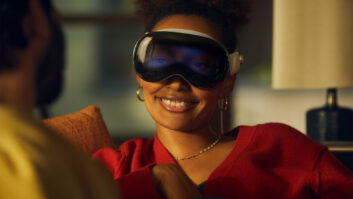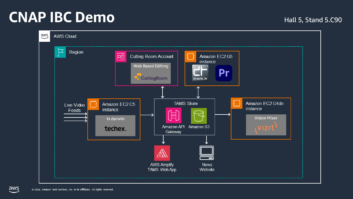BBC Resources has selected Crystal Vision to supply 72 units of its newly-launched combined up, down and cross converter, Up-and-down, for installation into TC1, BBC Resources’ largest studio located at BBC Television Centre in London.
The Up-and-down boards purchased will enable TC1 to operate as the BBC’s first High Definition studio. Purchased through the UK broadcast design and installation company Dega Broadcast Systems, who has previously been involved in other significant projects installing Crystal Vision equipment, the Up-and-down converters being used in TC1 are operating alongside an existing Crystal Vision system.
The original equipment was installed ten years ago when Crystal Vision was chosen to equip the BBC studio for its conversion from analogue to digital. The final decision to purchase the Up-and-down converters required detailed evaluation by the BBC in which they considered both the price and performance of the boards. Following installation of the Up-and-down converters, the first programme to be made in the newly equipped studio was broadcast live on 12th August 2006.
Incorporating a number of processing features including adaptive motion compensation, Up-and-down will choose the best processing method based on the video content to always ensure an exceptional output picture. Up-and-down performs up conversions from Standard Definition to 720p and 1080i, at both 50Hz and 59.94Hz. Down conversions are 720p and 1080i to Standard Definition also at both frame frequencies, with cross conversions of 720p to 1080i and 1080i to 720p also available. One of the applications of the Crystal Vision Up-and-down boards purchased is to up convert all the Standard Definition sources coming into the studio to High Definition format, mainly 1080i. The Up-and-down modules are also being used to subsequently down convert the feeds from High Definition so that both signal monitoring and individual programme recordings can be completed in Standard Definition.
The Up-and-down boards are housed in five Indigo 4S frames, which can hold up to 24 modules each, under the control of Statesman PC Control software and alongside 30 Crystal Vision DADA208D dual digital audio distribution amplifier modules also included on the same order. The audio delay cards, giving a maximum of two inputs and four reclocked outputs and offering selectable delay on each channel, are being used to match the audio to the one frame fixed delay provided by the Up-and-downs.







